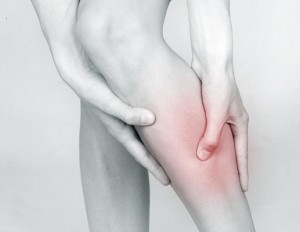
More evidence that low-calorie sweeteners are bad for your health
Studies show that artificial sweeteners can raise the risk of hypertension, metabolic syndrome, type 2 diabetes and heart disease, including stroke.

Q – I frequently get leg cramps when lying in bed. It can be very painful and my doctor doesn’t have much to suggest except stretching massage, which while they provide relief, don’t do much to prevent the problem. Is there anything else I can try?
A – Leg cramps are not usually a serious illness, but they can be incredibly painful. When they come on they can last minutes or hours and be very debilitating until they subside.
They are common after heavy exercise when you may be physically stressed and dehydrated. When they occur at night are called nocturnal or recumbency cramps, and are caused by spasm-like muscle contractions (this type may be particularly people over 50).
Another type of leg cramp is called Restless Leg Syndrome. In this condition the legs can be uncomfortable, you feel creeping sensations or a feeling like electric shock in the legs, and it is relieved by walking about. Symptoms come on when resting and are worse at the end of the day. This type of cramping is particularly common in women during times of hormonal upheaval such as pregnancy or menopause.
In most cases the cause is not known and conventional medicine has very little to offer in terms of treatment or prevention.
Multiple causes
Leg cramps can be caused by several things, including overuse, dehydration, muscle strain and inactivity are several of the primary causes of cramps. Inadequate blood supply, electrolyte or mineral imbalance in the body, and nerve compression may also contribute to the condition.
In some cases, the cramps may be a symptom of another problem. For example:
However, if you are otherwise well, and have no other unexplained symptoms, then the leg cramps are likely to be of unknown (idiopathic) cause.
Because they haves several causes, it is likely that no single treatment will help alleviate them. Here are a few things to try
Herbs Make an infusion of equal amounts of balm and cramp bark to help alleviate the problem. Drink a cupful as required. If stress is a factor try a relaxing herbal tea or tincture made from any of the following such as vervain, skullcap, passion flower or oat seed.
Homoeopathy Choose the remedy that best matches the symptoms.
Arnica 30 Cramp after over-exertion of muscles; system feels sore and bruised. One dose as necessary.
Cuprum 30C Severe cramping of the extremities, worse at night. One dose as required.
Mag Phos 6X For the tendency to keep getting cramp. Alleviated by rubbing and warmth. Take three times day for 10 days and then as required.
Aromatherapy Try essential oils of aniseed, basil, marjoram: Add two drops of each to 20ml of a base massage oil, and rub into the area to alleviate cramp.
Supplements Low potassium, magnesium and calcium levels have all been linked to leg cramps. Apple cider vinegar is high in potassium and this tonic should help quickly if your leg cramps are caused by low potassium: Mix 2 teaspoons apple cider vinegar, 1 teaspoon honey in a glass of warm water and drink. Raw chocolate nibs are high in both calcium and magnesium as are green foods. Why not try a daily green food smoothie as a preventative? Lack of iron – which can cause anaemia – is implicated in Restless Leg Syndrome supplements may help. For easily assimilable iron try iron waters such as Spatone.
Stretching Regular calf stretching exercises may prevent leg cramps, as can regular massage or acupressure. The position you sleep in may also be influential. Some experts recommend:
Cut back on caffeine and alcohol Try this for a couple of weeks or so to see if symptoms improve. If symptoms do improve, you could then experiment to see what level of caffeine or alcohol causes symptoms. For example, you may not need to cut these things out completely, but just take less than you were used to.
While leg cramps are rarely a sign of something more serious you should consult a practitioner if the cramping occurs frequently.

Please subscribe me to your newsletter mailing list. I have read the
privacy statement